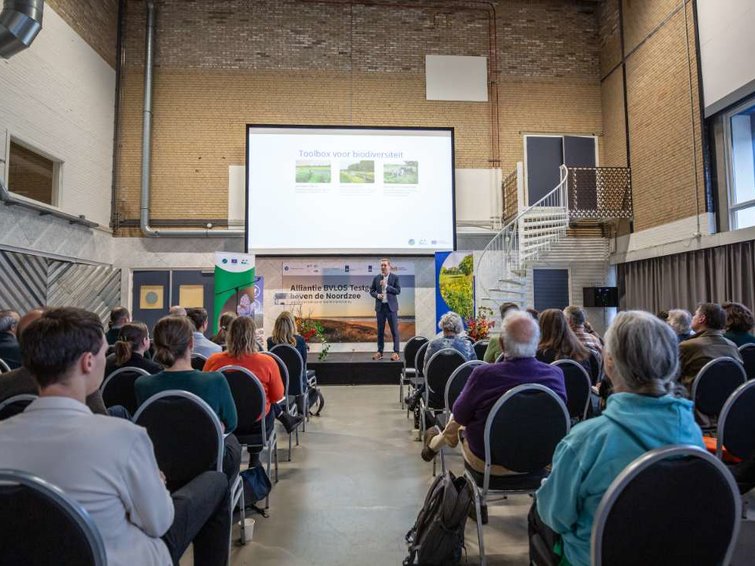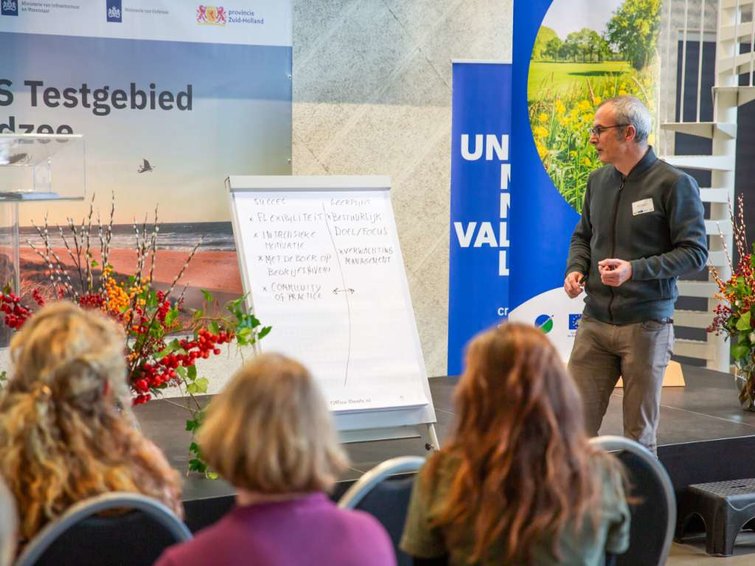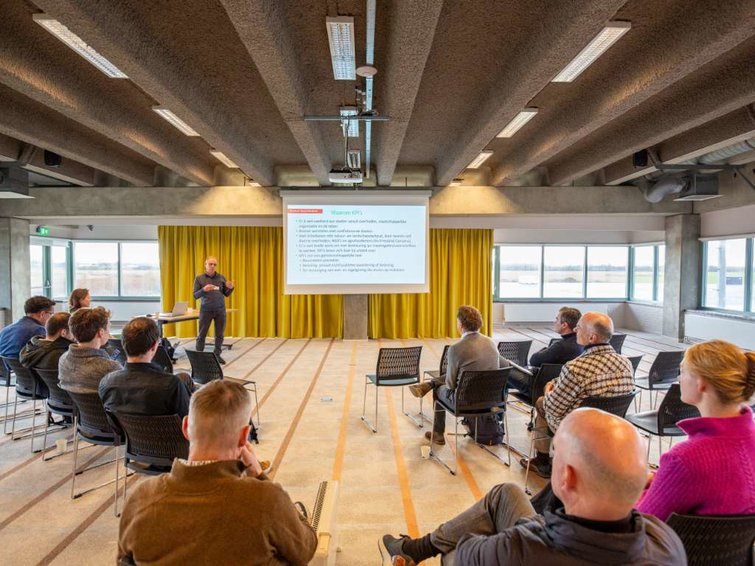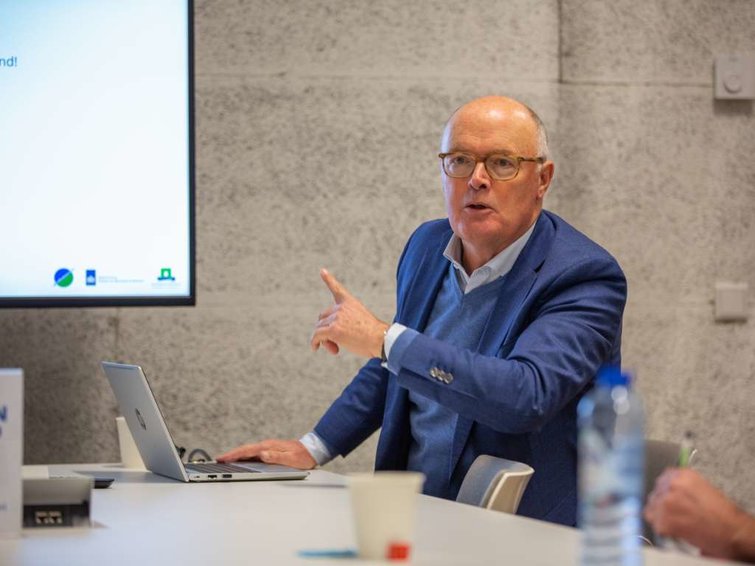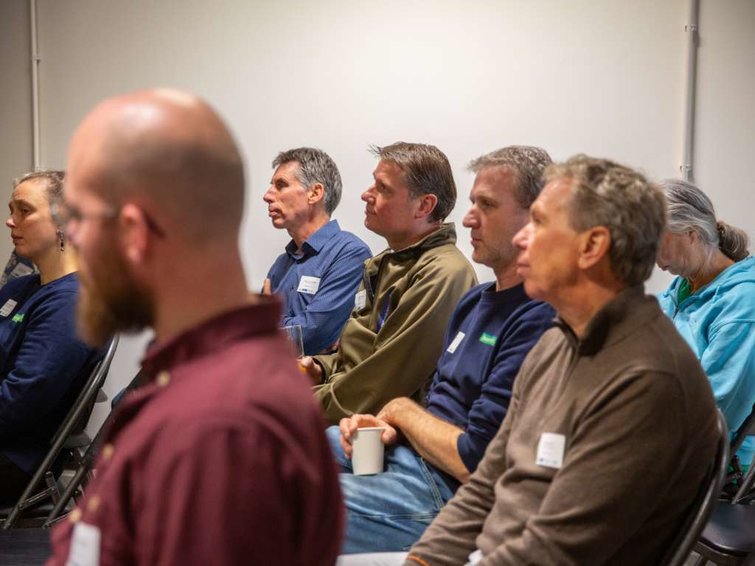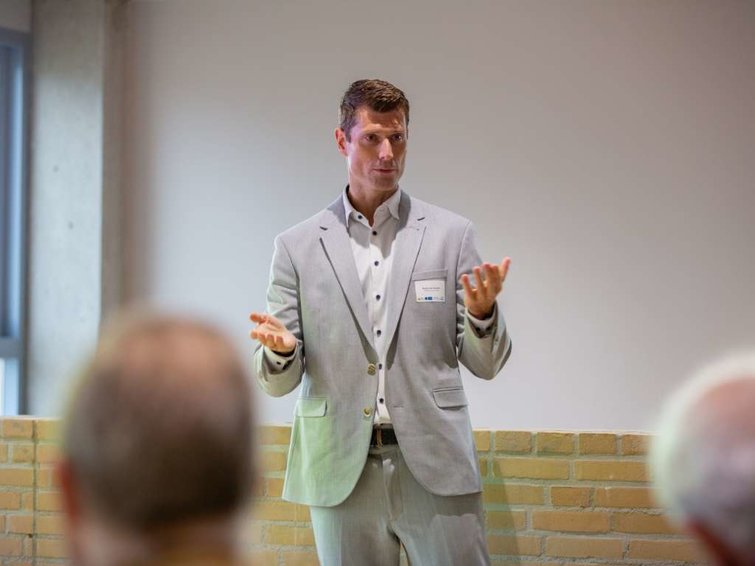LIFE IP All4Biodiversity: the importance of an area-based approach
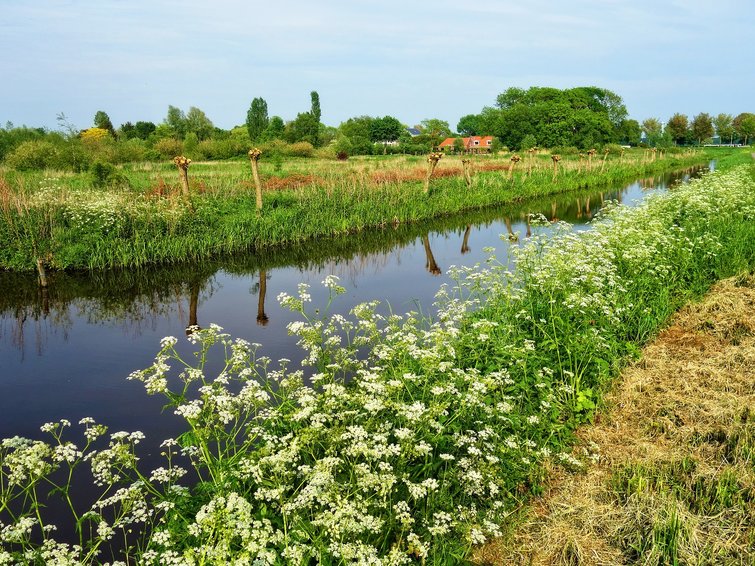
Photocredits: Stichting Deltaplan Biodiversiteitsherstel
On November 14th, the webinar ‘Collaboration with farmers – Uniting viable farming practices with nature conservation’, organised by LIFE IP All4Biodiversity and the Delta Plan for Biodiversity Restoration, took place. Seventy interested people joined the international webinar to learn more about this specific topic. Several LIFE IP programmes shared their findings in their search to improve nature quality in and around Natura2000 areas and beyond, whilst providing a viable and practical business model for farmers. Below you can read the report on the presentation about LIFE IP All4Biodiversity.
Ed Weijdema, working for the Province of South Holland, presented the LIFE IP All4Biodiversity program. All4Biodiversity aims to enhance biodiversity and improve the quality of nature within Natura2000 areas in the Netherlands. This program seeks to mitigate stress factors affecting these protected zones by fostering collaboration with stakeholders, including farmers, private organizations, and local governments. The project spans from 2020 to March 2026, with a final event planned for late 2025.
Goal and approach of All4Biodiversity
The main objective of the program is to improve the quality of nature in Natura 2000 sites by addressing stress factors through an area-based approach. Engaging with surrounding stakeholders, particularly farmers, is crucial in this effort. The program’s strategy is based on five success factors aligned with the Delta Plan for Biodiversity Restoration, which include:
-
Commitment and shared values – Ensuring alignment of interests among stakeholders to create a supportive network.
-
Optimised regional collaboration – Promoting coherent, regionally integrated approaches to biodiversity.
-
Business models with biodiversity as a revenue source – Developing economic models that link biodiversity directly to income for farmers.
-
Stimulating effective and consistent law and regulations – Advocating for policies that support biodiversity initiatives.
-
Addressing knowledge gaps – Providing stakeholders with the necessary tools and insights for biodiversity conservation.
These elements are considered essential to achieving All4Biodiversity’s long-term goals.
Three Phases of the Program
The program is structured in three phases:
-
Pilot projects – Conducted in participating provinces to develop and refine a toolbox for biodiversity.
-
Testing and optimisation – The toolbox is further improved through on-the-ground testing and gathering feedback.
-
Knowledge dissemination – Insights and best practices are shared widely to support similar efforts across regions and countries.
The program was also adapted to address climate-related concerns, emphasising the need for an integrated, area-oriented approach that incorporates both environmental and social factors.
Toolbox for Biodiversity
In his presentation, Ed Weijdema showed various tools that can be found in the Toolbox for Biodiversity. He elaborated on two of them in more detail.
-
KANO (Opportunities Analysis for Nature Development)
KANO is a specialised method designed to enhance landscape quality across six ecological themes, such as biotic quality and habitat connectivity, and 41 drivers. The process in an area-based approach involves all relevant stakeholders scoring each theme to identify feasible actions and collectively develop an action plan. The KANO approach has been piloted successfully in multiple areas, helping stakeholders align on specific measures for biodiversity enhancement.
-
Governance Training
Governance Training: getting a grip on collaboration. These trainingsessions target participants from provincial and municipal levels, focusing on collaboration and network building. The training addresses challenges in partnerships by examining decision-making processes, risks, and rules – which are often forgotten in collaborations. Participants are encouraged to view collaborations as structured entities - be it a contract, partnership, or network - to enhance clarity and effectiveness in stakeholder relationships.
Question: Looking at the results so far at the All4Biodiversity program, could you pinpoint some that are helpful for other countries as well?
Answer by Ed Weijdema: “Densely populated regions, like those we have in the Netherlands, benefit from integrated approaches in rural transitions. Similar countries, for example like Germany or Belgium, could potentially extract learnings from this. Also, the KANO has proven to be successful and shows us that stakeholder collaboration is of great importance in reaching our biodiversity restoration goals. These collaborations and networks foster connections and create synergies, which is something all countries could benefit from.”
Question: What is the role of the networks created in LIFE IP programs?
Answer by Ed Weijdema: “Through experience in The Netherlands and the province of South-Holland, we found out that there are so many parties involved relating to this topic. Every party is working from their own perspective, but there actually is a lot of overlap. When you integrate these parties in a network and start collaborating, there are a lot of win-win situations to be achieved.”
In summary, the LIFE IP All4Biodiversity program illustrates the importance of a coordinated approach to biodiversity conservation, emphasizing the role of practical tools and stakeholder collaboration in achieving sustainable outcomes for both nature and agriculture.
Check out the other reports and presentations of this webinar



